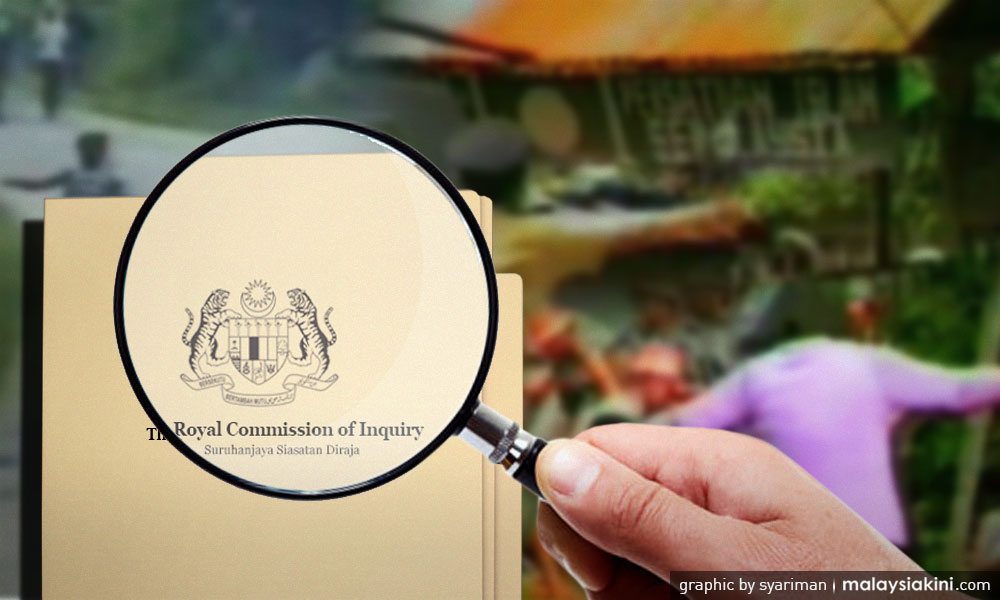
Since independence, Malaysia has held 12 sessions of the royal commission of inquiry (RCI) into various issues, the latest being an inquiry on Bank Negara's foreign exchange (forex) losses during the late 1980s and early 1990s.
The conduct and composition of the RCI are governed by the Commissions of Enquiry Act 1950, which empowers the Yang di-Pertuan Agong with the authority to appoint commissioners to look into the following:
- Conduct of any federal officer;
- Conduct or management of any department of the public service of Malaysia;
- Conduct or management of any public institution which is not solely maintained by state funds; or
- Any other matter in which an enquiry would, in the opinion of the Agong, be for the public welfare, while not involving Islam, Malay customs or certain matters pertaining to Sabah and Sarawak.
The subject of the 11 past RCIs are as follows: Salaries and conditions of civil service (1965), local authorities (1968), teaching service (1971), Penang ferry terminal collapse (1988), fire at Sekolah Agama Rakyat Taufikah al-Halimah, Kedah (1989), Bright Sparklers factory fire (1991), Anwar Ibrahim's black eye (1999), police reform (2004), Lingam-tape incident (2007, photo below, left)), Teoh Beng Hock's death (2010) and Sabah's population boom (2012).
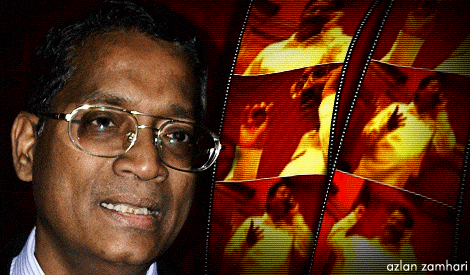 From this list, it is evident that, typically, an RCI is called to probe current affairs, with the exception being the inquiry into Sabah's population explosion, which allegedly began in the late 1990s.
From this list, it is evident that, typically, an RCI is called to probe current affairs, with the exception being the inquiry into Sabah's population explosion, which allegedly began in the late 1990s.
But now that Putrajaya has formed an RCI on Bank Negara's forex scandal, PAS has urged Putrajaya to form an inquiry on the Memali incident, which took place in 1985, as well.
This incident saw 14 civilians and four police personnel killed, following a botched attempt to detain Ibrahim Mahmud, better known as Ibrahim Libya, at a commune in Baling, Kedah. [Read our KiniGuide here]
This proposal has received a positive response from the federal government, possibly because it could affect the reputation of BN's "No 1 enemy of the Malays" - Dr Mahathir Mohamad.
In view of the recent trend of dredging up old issues for public scrutiny through an RCI, Malaysiakini has compiled a list of other old issues that might warrant an RCI.
This list is by no means exhaustive and is arranged in no particular order.
The 1988 judiciary crisis
In 1988, Mahathir, then the prime minister, subjected the then lord president Salleh Abas and five other senior judges to a tribunal and had them sacked.
Following this, the Federal Constitution was amended to limit the court's powers and the Supreme Court was replaced with the Federal Court.
Eventually, in 2008, Putrajaya decided to pay ex-gratia payments to the six judges, but it refused to admit that their sackings were wrong.
Payments, apology or otherwise, Malaysia's judiciary would never be the same again.
Ethnic clashes at Kampung Medan
A string of violent acts was sparked off by events in March 2001 at Kampung Medan, a lower-income neighbourhood in south Petaling Jaya.
The violence rapidly spread and lasted for a week, often involving rampaging gangs armed with swords and other weapons chasing after ethnic Indian victims.
In the end, six people died and dozens were injured. The authorities were accused of being slow to act while no one was ever charged for the carnage.
Perwaja Steel bailout
Soon after Mahathir became prime minister, Malaysia and Japan's Nippon Steel Corp formed Perwaja Steel to spearhead Malaysia's industrialisation efforts.
Years later, Perwaja Steel was deeply in the red and the federal government was forced to bailout the company, reportedly to the tune of RM10 billion.
Mahathir's associate Eric Chia Eng Hock was in 2004 charged with criminal breach of trust for his role as the Perwaja Steel boss. He was acquitted in 2007.
To date, no one has been punished for the Perjawa Steel's losses.
The Altantuya Shaariibuu murder
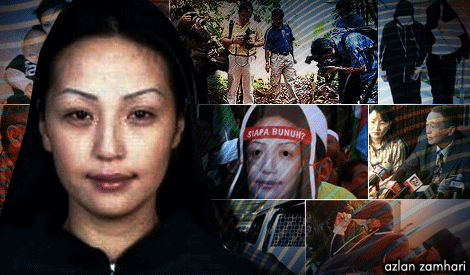 Although the courts have convicted two of police personnel with the murder of Mongolian national Altantuya Shaariibuu in 2006, many questions remain.
Although the courts have convicted two of police personnel with the murder of Mongolian national Altantuya Shaariibuu in 2006, many questions remain.
For instance, the court itself has noted that there was an absence of a motive, while there has been no proper explanations why Altantuya's records with the Immigration Department were "kept secret" for nine years.
The links between the three people put on trial with then deputy prime minister Najib Abdul Razak had also sparked many conspiracy theories that have never been put to rest.
Operasi Lalang dragnet
The police arrested 106 individuals without trial under the Internal Security Act 1960 (ISA) in response to alleged simmering racial tensions. The print licences of several newspapers were also revoked.
None of the individuals were charged with any offences. The detainees were released in stages, but some lost up to two years of their liberty.
The incident was described as a flagrant violation of human rights, justice and press freedom. The effects of which - a pliant media and detention without trial - persist until today.
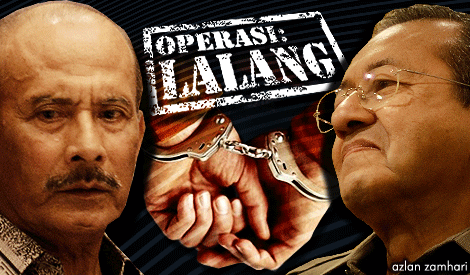 Mahathir, who was also home minister at the time, said the arrests were soughtby the police. The ISA can only be invoked with the permission of the home minister.
Mahathir, who was also home minister at the time, said the arrests were soughtby the police. The ISA can only be invoked with the permission of the home minister.
Port Klang Free Zone
Port Klang Free Zone (PKFZ) was a government project that was supposed to cost RM2 billion but was hampered by cost overruns, prompting Putrajaya to extend several billion ringgit in soft loans.
An independent audit fingered several individuals of wrongdoing and charges were laid. Until now, none of those charged have been convicted.
Two ministers - Dr Ling Liong Sik and Chan Kong Choy - who were accused of cheating cabinet, walked free after the prosecution exhausted its appeals.
Maika Holdings scandal
In the early 1980s, MIC formed Maika Holdings as an investment company that raised RM106 million from about 55,000 shareholders - mostly from the lower-income group - which made the company one of the richest at the time.
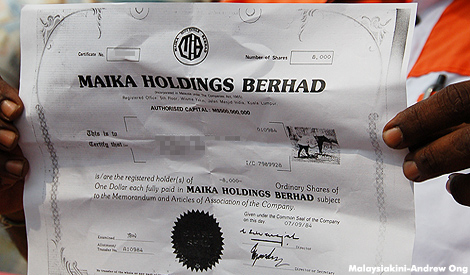 Eventually, the company failed to deliver returns to investors and those who had taken loans or had sold their assets to invest were left in a lurch.
Eventually, the company failed to deliver returns to investors and those who had taken loans or had sold their assets to invest were left in a lurch.
It took until 2010 for an angel investor in the form of tycoon G Gnanalingam, who stepped in to buy up the shares from investors at close to par value.
Deaths in custody
Although an RCI was formed in 2010 to investigate the circumstances of Teoh Beng Hock's death while being detained by the Malaysian Anti-Corruption Commission (MACC), custodial deaths are still regularly occurring and the numbers are alarming.
So far in 2017 alone, human rights watchdog Suaram has already recorded nine instances of custodial deaths, of which seven involved those held in police detention.
The Human Rights Commission (Suhakam) and other groups have also warned that many lock-ups in the country were still filthy and were likely to incubate diseases.
1Malaysia Development Bhd
Perhaps the most eagerly awaited RCI would be on 1MDB, a sovereign wealth fund founded by the Najib's administration in 2009 that is facing money laundering investigations in several jurisdictions abroad, while charges have yet to be laid in Malaysia.
The company relied on billions of ringgit in loans for investment purposes and soon defaulted on payments.
The company was subjected to an audit by the National Audit Department, but the report remains a state secret. The Public Accounts Committee (PAC) has called for action to be taken against some of 1MDB's managers, but no one has hitherto been charged.
PAC also concluded that Putrajaya's exposure due to 1MDB was around RM20 billion, although official line ad nauseam is that the no public funds would be involved.
Perhaps, like the forex scandal now being inquired into, an RCI on 1MDB will only see the light of day - several decades later. -Mkini



No comments:
Post a Comment
Note: Only a member of this blog may post a comment.